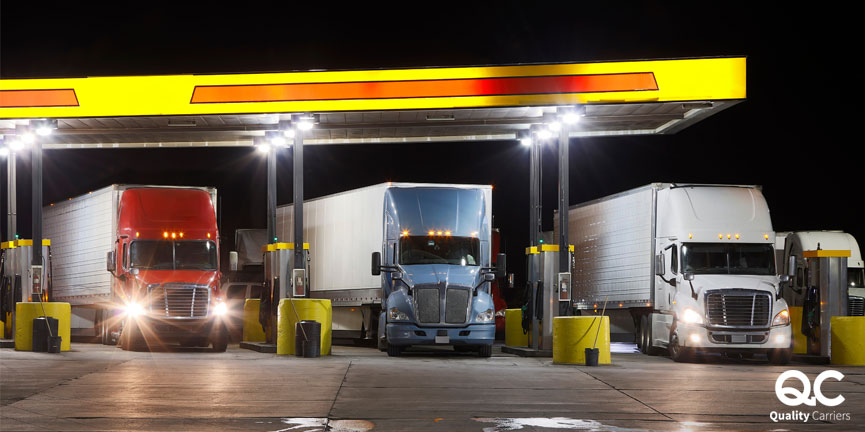In the trucking industry, fuel is one of the most significant expenses. Fluctuating fuel prices can substantially impact an owner operator’s bottom line. To mitigate this financial rollercoaster, many trucking companies implement fuel surcharge programs.
In this blog post, we’ll delve into how fuel surcharges work, why they matter for owner operators, and how to make the most of them to boost your profitability.
What is a Fuel Surcharge?
The fuel surcharge is an additional fee added to the cost of transporting goods. It is designed to offset the fluctuations in fuel prices, primarily diesel fuel, which is a significant expense in the transportation industry. When fuel prices rise, the surcharge increases; when fuel prices fall, the surcharge decreases. This adjustment helps carriers cover the varying fuel costs, ensuring they can maintain profitability despite fuel price volatility. Fuel surcharges are a common practice in the transportation and logistics industry.

How is a Fuel Surcharge Calculated?
A fuel surcharge is calculated based on several critical factors, including:
- Base Fuel Price: This is the benchmark fuel price used as a reference. It’s typically based on the national average diesel fuel price.
- Truck Fuel Economy: The specific truck’s fuel efficiency is considered. Larger and more efficient trucks will consume less fuel per mile.
- Fuel Price Change: The difference between the current and base fuel prices is calculated.
The Fuel Surcharge Calculation Method
Now that you know these three variables, let’s examine the precise calculation method frequently employed by trucking owner operators. Initially, a company determines the change in diesel fuel costs by subtracting the original fuel price from the updated one.
Once this figure is established, the carrier divides it by the truck’s miles per gallon, yielding the fuel cost per mile. Following this, the carrier multiplies the cost per mile by the total distance covered, encompassing both the pickup and drop-off distances.
In a simplified breakdown, here’s how a fuel surcharge is calculated:
- Original fuel price – Updated fuel price = Difference in fuel cost
- Difference in fuel cost / Miles per gallon = Cost per mile
- Cost per mile x Distance traveled = The fuel surcharge
Here’s an example of how the calculations work:
- The original fuel price: $4.20
- The updated fuel price: $4.50
- The difference in fuel cost: $0.30
- The miles per gallon: 6 MPG
- The cost per mile: $0.05
- The distance traveled: 600 miles
- Fuel surcharge: $30.00

How Does Fuel Surcharge Work for Owner Operators?
Fuel surcharges for owner operators are negotiated within their contracts with carriers or shippers. A surcharge is triggered when diesel fuel prices rise above an agreed-upon baseline. The calculation method varies but typically considers the difference between the current fuel price and the baseline, multiplied by an agreed-upon rate per mile. Owner operators then submit mileage data and calculations for payment received and their standard per-mile rate.
Fuel surcharges are critical to the trucking industry, providing financial stability for owner operators when fuel prices fluctuate. By understanding how they work and actively managing your fuel costs, you can confidently navigate the road ahead, knowing that your business remains profitable even in the face of rising fuel prices.
FAQs
The baseline fuel price used for calculating surcharges can vary but is often based on a standard industry index, such as the U.S. Department of Energy’s Diesel Fuel Price Index. This index reflects the average diesel fuel prices in specific regions, providing a reference point for calculating surcharges.
Owner operators charge a fuel surcharge to offset the additional fuel expenses incurred due to fluctuations in diesel prices. It helps them maintain profitability, especially when fuel costs rise significantly.
Yes, owner operators can assess a fuel surcharge based on the terms outlined in their contracts with shippers or carriers. The ability to evaluate such surcharges often depends on the specific agreements in place and whether they account for fuel price fluctuations.




